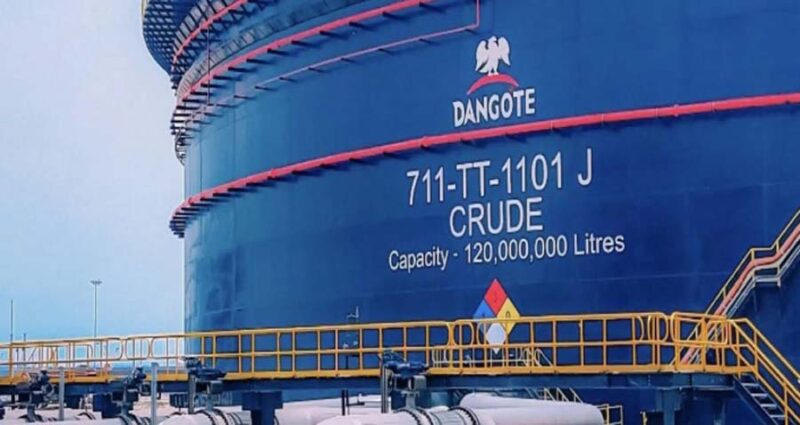Business
Supreme Court orders relisting of appeal in GTB/Innoson case

The Supreme Court has reversed its earlier decision which dismissed an appeal by Guaranty Trust Bank (GTB) against N2.4 billion judgment given in favour of Innoson Vehicles Manufacturing.
It ordered that the appeal marked: SC/694/2014 be relisted.
A Federal High Court in Ibadan, Oyo State, had ordered the GTB through Garnishee order absolute — to pay N2.4 billion to Innoson with a 22% interest, per annum, on the judgment sum until the final liquidation.
A garnishee order is one of the options open to a judgment creditor to enforce a judgment made in its favour.
Dissatisfied, the bank had appealed the high court’s verdict up to the apex court.
The Supreme Court, however, on February 27, 2019, dismissed the GTB’s appeal and affirmed the judgment of the Federal hHgh Court.
Aggrieved by the Supreme Court’s judgment, GTB filed an application seeking the relisting of the appeal on the grounds that it was wrongly dismissed.
Delivering judgment on Friday, a five-member panel of justices led by Olukayode Ariwoola, held unanimously that the supreme court erred when it erroneously dismissed GTB’s appeal marked: SC/694/2014.
In the lead judgment written by Tijani Abubakar but read by Abdu Aboki, the court held that it was misled by its registry, which failed to promptly bring to the notice of the panel that sat on the case on February 27, 2019, that GTB had already filed its appellant’s brief of argument.
The Supreme Court stated that if the panel hearing the case on February 27, 2019, had been informed of the availability of the appellant’s brief of argument, the judgement would not have been issued.
Relying on Order 8 Rules 16 of the Supreme Court Rules, the apex court held that it has the power to set aside its decision in certain circumstances, like any other court.
According to the panel, some of the circumstances to do so includes when the parties obtained judgment by fraud, default or deceit; where such a decision is a nullity or where it is obvious that the court was misled into giving a decision.
“I am convinced that at the material time that the appellant’s appeal was inadvertently dismissed by this court, there was in place, a valid and subsisting brief of argument filed by the applicant,” the court held.
“It will be unjust to visit the sin of the court’s registry on an innocent, vigilant, proactive and diligent litigant.
“It is obvious from the material before us, that there were errors committed by the Registry of this court, having failed to bring to the notice of the panel of Justices that sat in chambers on the 27th February 2019 that the appellant had indeed filed its brief of argument.
“This is a case deserving of positive consideration by this court.
“Having gone through all the materials in this application, therefore, I am satisfied that the appellant/applicant’s brief of argument was filed before the order of this court made on the 27th of February 2019 dismissing the applicant’s appeal.
“The order dismissing the appeal was therefore made in error. It ought not to have been made if all materials were disclosed. The application is, therefore, meritorious and hereby succeeds.”
The court then set aside its previous ruling and ordered that the appeal marked: SC/694/2014 “be relisted to constitute an integral part of the business of this court until its hearing and determination on the merit.”
Business
Naira loses N81 to dollar in one day

Naira loses N81 to dollar in one day
The naira lost N81.34 against the US dollar at the foreign exchange market on Thursday
FMDQ data showed that the naira fell to N1,154.08 per dollar on Thursday from N1,072.74 on Wednesday.
This represents a 7.04 per cent loss against the dollar compared to N1,072.74 per dollar traded the previous day.
At the parallel market, the naira also depreciated N1,100 per dollar on Thursday from N1, 040 on Wednesday.
This is the second time the naira would be depreciating against the dollar in three days amid fears of depleting foreign exchange reserves.
Nigeria’s foreign reserves dropped to $32.29 billion as of April 15.
Business
Govt paying N600bn for fuel subsidy monthly — Rainoil CEO

Govt paying N600bn for fuel subsidy monthly — Rainoil CEO
The CEO of Rainoil Limited, Gabriel Ogbechie, has claimed that the federal government resumed the payment of the controversial fuel subsidy following the devaluation of the Naira in the foreign exchange market.
Ogbechie made this statement on Tuesday during the Stanbic IBTC Energy and Infrastructure Breakfast Session held in Lagos.
He pointed out that with Nigeria’s daily fuel usage at 40 million liters and the foreign exchange rate at N1,300, the government’s subsidy per liter of fuel falls between N400 and N500, culminating in a monthly total of approximately N600 billion.
He said; “When Mr. President came in May last year, one of the things he said was that Subsidy is gone. And truly, the subsidy was gone, because immediately the price of fuel moved from 200 to 500 per liter. At that point truly, subsidy was gone.
“During that period, Dollar was exchanging for N460, but a few weeks later, the government devalued the exchange rate. And Dollar moved to about N750. At that point, subsidy was beginning to come back.
READ ALSO:
- North Central Support Group rejects Northern Elders, pledges allegiance to Asiwaju
- Gunmen kidnap 2 FRSC officers along Abakaliki-Enugu highway
- Driver killed, 16 passengers abducted on Abuja-Lokoja road
“The moment the two markets officially closed, officially the market went to about N1,300. At that point, that conversation was out of the window. Subsidy was fully back on petrol. If you want to know where petrol should be, just look at where diesel is. Diesel is about N1,300 and petrol is still selling for N600.
Furthermore, he said that NNPC being the only petrol importer in the country implies that there is an ongoing subsidy, as prices had to be fixed.
Earlier yesterday, the former governor of Kaduna State, Nasir El Rufai, said the federal government is spending more on petrol subsidy than before.
In addition, the Special Adviser to the President on Energy, Mrs. Olu Veŕheijen, said that the Federal Government reserves the right to pay fuel subsidy intermittently to cushion hardship in the country.
“The subsidy was removed on May 29. However, the government has the prerogative to maintain price stability to address social unrest. They reserve the right to intervene.
“If the government feels that it cannot continue to allow prices to fluctuate due to high inflation and exchange rates, the government reserves the right to intervene intermittently and that does not negate the fact that subsidy has been removed,” she said.
Govt paying N600bn for fuel subsidy monthly — Rainoil CEO
Business
Breaking: Dangote brings diesel price down to N1000/litre

Breaking: Dangote brings diesel price down to N1000/litre
Dangote Petroleum Refinery has announced a further reduction in the price of diesel.
When it commenced operation a few weeks ago, Dangote Petroleum Refinery pegged the price of diesel as N1,200.
While rolling out the products, the refinery supplied at a substantially reduced price of N1,200 per litre three weeks ago, representing over 30 percent reduction from the previous market price of about N1,600 per litre.
READ ALSO:
- Kano anti-corruption agency slams fresh charges against Ganduje
- Troops kill ISWAP Commanders, 30 other terrorists
- Ooni of Ife dismisses agitators of Yoruba nation
However, on Tuesday, a further reduction of N200 was noticed in the price, with the product now pegged at N1,000.
This significant reduction in the price of diesel, at Dangote Petroleum Refinery, is expected to positively affect all the spheres of the economy and ultimately reduce the high inflation rate in the country.
The President of Dangote Group, Aliko Dangote, had during the Eid-el-Fitr celebration said if the cost price of diesel comes down, the inflation rate will be substantially reduced.
Dangote spoke when he visited President Bola Tinubu in his residence in Lagos State to celebrate the end of the Ramadan fast with him.
Breaking: Dangote brings diesel price down to N1000/litre
-

 Sports7 days ago
Sports7 days agoKane’s three children involved in car crash, hospitalised
-

 metro6 days ago
metro6 days agoTroops neutralise 188 terrorists, rescue 133 hostages in assault operations
-

 News6 days ago
News6 days agoFG gives update on where fleeing Binance executive is hiding
-

 Entertainment6 days ago
Entertainment6 days agoTolani Baj expresses love for Bobrisky
-

 metro6 days ago
metro6 days agoViral video: Edo CP orders trial of officer threatening people with gun
-

 News5 days ago
News5 days agoNLC, TUC jointly propose N615,000 new minimum wage
-

 News7 days ago
News7 days agoNew electricity tariff may drop if naira rebounds further – Adelabu
-

 metro7 days ago
metro7 days agoBreaking: Bobrisky sentenced to six months imprisonment without option of fine






















